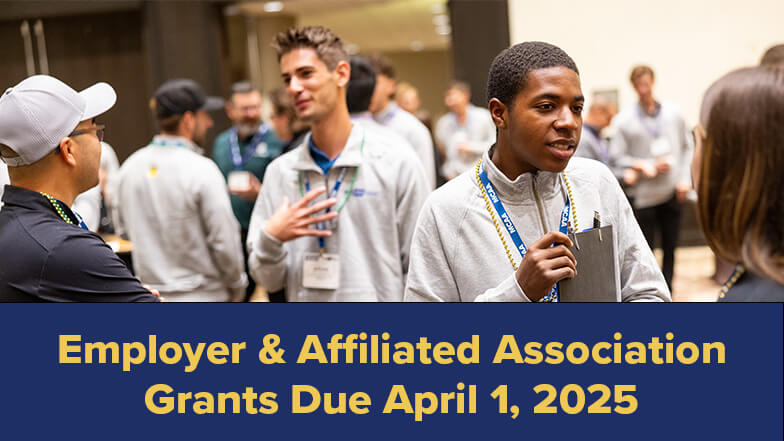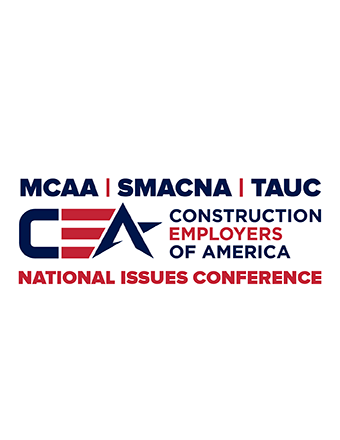Featured Resources
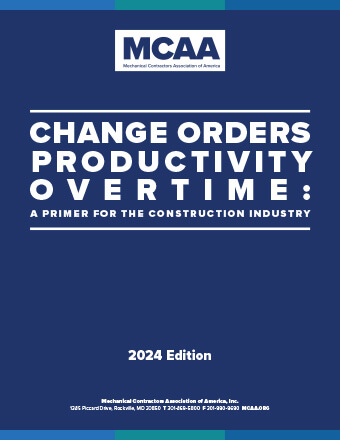
Change Orders, Productivity, Overtime—A Primer for the Construction Industry
This planning tool helps you determine the costs associated with unplanned events, circumstances and factors that may impact the outcome, productivity and schedule of construction projects. New for 2024: a chapter exploring the factors that contribute to BIM cost and time overruns.
Mental Health Awareness & Suicide Prevention Video
Our newest safety and health video highlights the success story of an industry veteran, with appearances from MCAA’s president Robert Beck, the UA’s Jen Massey, industry expert Dr. Sally Spencer Thomas, and MCAA member Ricky Reams.
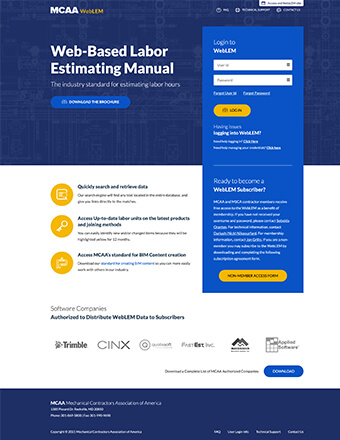
WebLEM is the industry’s most reliable authority for comprehensive labor units for typical project tasks. Quickly search for and retrieve information. WebLEM is reviewed and updated to reflect the latest products and joining methods. You will need your MCAA.org username and password to log in to WebLEM. For WebLEM access questions, please refer to the WebLEM Access FAQs page.

National Service and Maintenance Agreement
The National Service and Maintenance Agreement is an agreement negotiated and administered by the United Association of Journeymen and Apprentices of the Plumbing and Pipefitting Industry (UA) and the Mechanical Service Contractors of America (MSCA) and is a signed contract between the UA and individual mechanical service contracting firms who apply and qualify. The Agreement is a nationally recognized tool that helps contractors provide quality, consistent service to their customers throughout the country and helps reclaim lost market share.
Don’t miss out on the upcoming PCA Plumbing Service Conference! May 19-21, 2025, in St. Louis, this event is your best opportunity to learn, share, and grow in your understanding of operational plumbing service. With industry leaders, in depth tours, and invaluable networking, this is a conference you don’t want to miss. Sign up now!
The ripple effect of change begins with one small action – and in the mechanical industry, women are making waves. The WiMI Conference offers an unparalleled opportunity to connect with like-minded professionals, gain valuable knowledge, and be inspired by the journeys of those who have dared to lead. Whether you’re new to the industry or a seasoned executive, the WiMI Conference is a platform for you to find your voice and expand your influence within the industry. Join us at the WiMI Conference – empower yourself, connect with others, and leave ready to make your mark on the industry. Register now!
MCAA’s Virtual Trade Show connects our contractor members with the members of MCAA’s Manufacturer/Supplier Council.
Asked for advice on the Belvidere, IL, School District’s new boilers, the Helm Group’s Service Division recommended Laars Heating Systems Company’s MagnaTherm® FT boilers. The Helm Group was impressed with the product quality as well as Laars’ extended warranty and commitment to supporting customers. Helm Group then competed for and won the contract to install and maintain the Laars systems, successfully installing them in the strict three-month window before the new school year. LAARS, a Bradford White Company, is a benefactor of MCAA25.
Your field leaders are professionals who build people as much as they do projects. Do they have the skills needed to motivate people, use influence over authority and mentor, coach and empower their crews? Mark Breslin’s presentation at the Field Leaders Conference offers new ideas, strategies and tools to help them enhance crew performance. Your field leaders will leave Mark’s presentation with a new level of energy and vision for their future. Register them today!
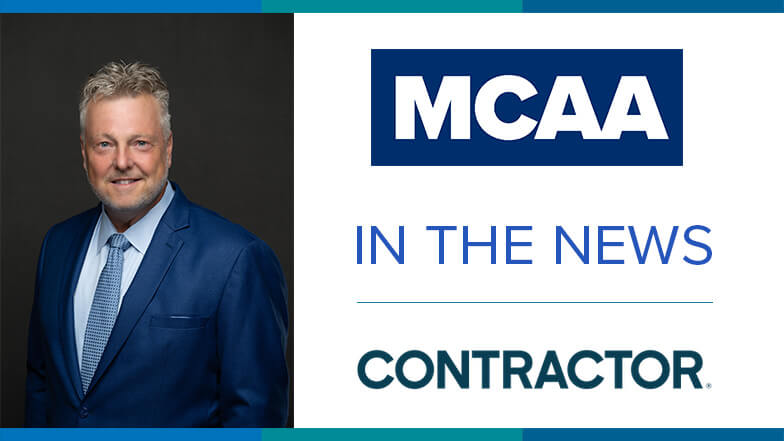
Newly elected MCAA President Brian Hughes discussed his commitment to enhancing member engagement and increasing awareness in a recent Contractor magazine interview. He emphasized his priorities for the year ahead, which include strengthening member resources, navigating economic uncertainty, and preparing contractors for opportunities in data centers, healthcare, energy, and infrastructure. Drawing on years of leadership within MCAA, Hughes aims to guide the association through evolving market conditions and ensure its members remain competitive and future-ready. Hughes became MCAA’s president at the close of MCAA25 on March 6, 2025.
PPE is the last line of defense, and sometimes all you need to prevent and injury or save a life. Preventable injuries impact our safety culture, company morale, and our bottom lines. MCAA’s Personal Protective Equipment Safety & Health Resources include our newest videos on hearing protection, head protection, eye protection, respiratory protection, and hand protection. These videos are a candid look at what happens when you don’t wear PPE, and how easily you can help yourself and others by wearing these lifesaving pieces of personal protection. These are just a few of MCAA’s educational resources that are free to MCAA members as a benefit of membership.
The John R. Gentille Foundation (JRGF) Internship Grant program has been upgraded for 2025 to offer a new level of support for the multiple entities involved with developing the future talent of our industry.
MCAA welcomed its two newest student chapters by granting charters to Arizona State University and the University of Manitoba during the MCAA25 Awards of Excellence Breakfast on March 5th in Austin, TX.
The Manufacturer/Supplier Training area of MCAA’s website connects our contractor members with training opportunities available from the members of MCAA’s Manufacturer/Supplier Council.
MCAA’s National Education Initiative (NEI) Seminars bring our best programs to your local association or your company thanks to instructors like Frank Favaro, founder and President of ServeCentric Coaching in Cleveland, OH. Frank teaches sales employees where other companies drop the ball when it comes to customer interactions, relationships, and service and how to avoid those same mistakes.
MCAA’s Virtual Trade Show connects our contractor members with the members of MCAA’s Manufacturer/Supplier Council.
MCAA’s web-based labor estimating manual is an invaluable tool for your business. Free as a benefit of your membership.
WebLEM
Scholarships are just one way the John R. Gentille Foundation is investing in your industry’s future. Have you invested in it?
JRGF
You can make an impact on the future of your industry and your business by contributing to the MCAA Political Action Committee.
MCAA PAC
Looking for an intern? You can head to our improved student chapter website and check out the great resumes there!
MCAAGreatFutures
The year-round involvement of our manufacturer/supplier members is part of what makes MCAA special. Learn more about the Council and the value it brings to MCAA.






